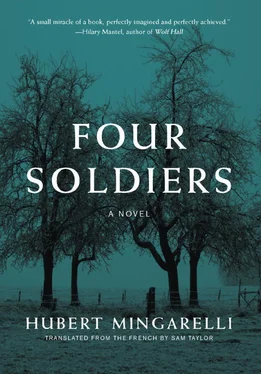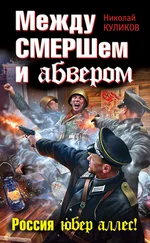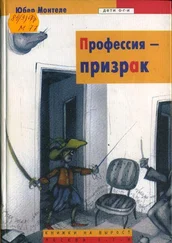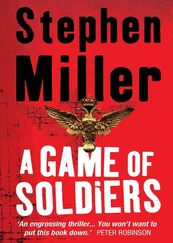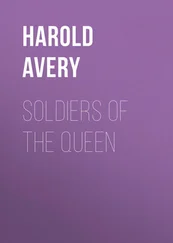Юбер Мингарелли - Four Soldiers
Здесь есть возможность читать онлайн «Юбер Мингарелли - Four Soldiers» весь текст электронной книги совершенно бесплатно (целиком полную версию без сокращений). В некоторых случаях можно слушать аудио, скачать через торрент в формате fb2 и присутствует краткое содержание. Город: New York, Год выпуска: 2018, ISBN: 2018, Издательство: The New Press, Жанр: Историческая проза, prose_military, на английском языке. Описание произведения, (предисловие) а так же отзывы посетителей доступны на портале библиотеки ЛибКат.
- Название:Four Soldiers
- Автор:
- Издательство:The New Press
- Жанр:
- Год:2018
- Город:New York
- ISBN:978-1-62097-441-4
- Рейтинг книги:5 / 5. Голосов: 1
-
Избранное:Добавить в избранное
- Отзывы:
-
Ваша оценка:
- 100
- 1
- 2
- 3
- 4
- 5
Four Soldiers: краткое содержание, описание и аннотация
Предлагаем к чтению аннотацию, описание, краткое содержание или предисловие (зависит от того, что написал сам автор книги «Four Soldiers»). Если вы не нашли необходимую информацию о книге — напишите в комментариях, мы постараемся отыскать её.
Four Soldiers — читать онлайн бесплатно полную книгу (весь текст) целиком
Ниже представлен текст книги, разбитый по страницам. Система сохранения места последней прочитанной страницы, позволяет с удобством читать онлайн бесплатно книгу «Four Soldiers», без необходимости каждый раз заново искать на чём Вы остановились. Поставьте закладку, и сможете в любой момент перейти на страницу, на которой закончили чтение.
Интервал:
Закладка:
The kid listened to what we said.
He stared without blinking at whoever was speaking.
At one point I felt sorry for him because we were speaking so fast, and sometimes Kyabine would start talking before Pavel or I had finished what we were saying.
Suddenly we fell silent, because it was over.
The kid took out his notebook and uncoiled the string that held the pencil to it.
As he opened his notebook, he looked at all four of us, sitting in a row on the bank. I nodded to him to signal that it was time for him to get started. ‘And try not to forget anything,’ I added.
He nodded at me to reassure me that he would.
Pavel started tapping his cigarette case against his knee. Finally he opened it and gave one to each of us. Except to the Evdokim kid, who didn’t smoke, and who wasn’t paying any attention to us any more anyway because he’d started writing in his notebook. Occasionally he would look up at us briefly before returning to his task.
40
WE SMOKED IN silence. We didn’t move much and we were still quite pensive.
We didn’t want to move much because the Evdokim kid was writing things that talked about us and our pond. It was really strange and I’m sure the others all felt the same.
Kyabine would sometimes glance at the kid as if he were on the lookout for something. I’m sure that he was thinking about the fish he’d caught and cooked and eaten here, only yesterday, and that he was hoping the kid was going to write that in his notebook since he had witnessed it himself.
He was right to hope for that. I agreed with him that it was one of the good moments we had spent here. The circle of stones that Kyabine had laid to cook the fish was still there, with the blackened flat stone balanced on top of the others. At last I said to the kid, in a low voice so I wouldn’t distract him too much: ‘Don’t forget to talk about Kyabine’s fish.’
The kid looked up at me and I gestured at the circle of stones.
‘No,’ he said, ‘I won’t forget.’
‘Write about him cooking it and all that.’
The kid nodded and went back to his notebook.
Kyabine looked at me and smiled. And then after a while, speaking in a low voice like I had so as not to distract the kid, he called out: ‘Pavel!’
‘What, Kyabine?’
Kyabine took a breath and whispered: ‘So we’re leaving tonight, Pavel, huh?’
Of course he’d heard that we were leaving tonight when we were at the camp, and I’d said it to him again just afterwards. But he needed to hear it said another time by one of us. As though, coming from us, it suddenly wasn’t such bad news. Pavel understood this. In a considerate voice, he replied: ‘Yes, that’s right, we’re leaving tonight.’
Kyabine stared straight ahead then. He thought for a moment. He picked up a stone from between his legs. He needed to hear us again. In a trembling voice he asked: ‘So we’re going to continue like we have been, right? We’re going to stick together?’
Kyabine knew the answer to this question too. He knew we would continue as we had been. All the same, we signalled to him that obviously nothing would change for the four of us, what did he think, of course we would stick together. Then, in an anxious voice, he said: ‘But what if they mix up the companies one day? Pavel, you know they’re always doing that.’
There was a silence.
Frightened, Kyabine asked: ‘Eh? What would we do?’
‘Don’t worry, Kyabine,’ Pavel told him. ‘Even if they mix up the companies, we’ll always work things out.’
Kyabine nodded again, and this time he smiled gratefully too. And so, wanting to reassure us in turn — or, actually, no, I think he just wanted to thank us for talking to him like that — but anyway, he said to us: ‘Don’t worry, I’ll always carry the tent.’
Nobody wanted to make fun of him, to say things like ‘you’d better’ or that they had no intention of helping with that chore.
After that, Kyabine took the stone that he was holding in his hand and threw it in the pond. The surface of the water rippled around the point of impact. A bit further away, a fish jumped out of the water. Kyabine picked up another stone, then he let it drop to the ground between his legs. We were all full of worries and fears, but that morning it was Kyabine — the huge, muscular Uzbeki — who was showing it most.
‘It’ll be all right, Kyabine,’ I told him.
‘You really think so?’ he asked.
But it wasn’t me who answered him. Instead, for once, Sifra spoke without first being asked a question. He just wanted to say something. In his gentle, persuasive voice he told Kyabine: ‘Yes, it’s true, Kyabine. It’ll be all right, because we’ll always stick together.’
It did us all good to hear Sifra say that, so gently. It was so unusual to hear any words at all come out of Sifra’s mouth that these ones carried special weight. They seemed to bear the stamp of truth. As if the baby Jesus himself had said them. Kyabine appeared to relax.
While this was going on, the Evdokim kid continued to set down in his notebook all those moments we had spent together at the pond, all those moments that were behind us now.
While he was sitting across from us, thinking perhaps about how he was going to write about Kyabine and the fish, I had the strange sensation that if I just stretched out my arm I’d be able to touch the evening with the back of my hand, and that suddenly I’d hear the sound of us raising camp, the tread of our company marching down the road in a column. Walking through the night to who knew where.
But thankfully tonight Kossarenko’s company was going to raise camp and set out before us. We were going to follow them at a distance and try to march at the same speed as them so we didn’t catch them up.
I thought: Let our company march behind Kossarenko’s for as long as possible, sheltered by them, at least until tomorrow morning. And I hoped for Kossarenko’s men that there would be no moon tonight and that they would manage to march in complete silence.
41
I FELT THE sun on my back.
I saw it reflected on the surface of the water.
It was good that the water should be calm and the air still today.
Something moved furtively in the grass behind us. Kyabine turned around to look. There was nothing there.
Pavel was sitting next to me. He was breathing slowly. I saw his shoulders rise. He was staring intensely ahead of him.
Then suddenly I started hoping that Kossarenko’s company would march before ours for all eternity and that they would eternally hear the first bullets whistle before we did, hear the terrible shells explode, and see before we did everything we feared, may God protect them and forgive me.
42
WHEN THE EVDOKIM kid closed his notebook, he looked satisfied. And because we hadn’t wanted to move while he was writing, because we’d just stayed where we were, sitting motionless in a row under the burning sun, we were beginning to feel hot in our coats.
It wouldn’t have made much difference to the kid if we’d moved while he was writing. He didn’t need us any more, because he knew exactly what he had to say. But since he would sometimes glance up and observe us briefly, we had the impression that it might help him if we were always in sight, so we didn’t stir.
We waited until he’d put his notebook away in his jacket pocket.
Only then did we take off our coats.
Pavel spread his out on the grass behind us. He walked over to the water and said: ‘Let’s stay here.’
He turned around and looked at us. He calmly sized us up and said: ‘Let’s stay here, eh? What do you think?’
I nodded. ‘Yeah, let’s stay. Ermakov can go fuck himself. There are plenty of other idiots to help him dismantle the company office.’
Читать дальшеИнтервал:
Закладка:
Похожие книги на «Four Soldiers»
Представляем Вашему вниманию похожие книги на «Four Soldiers» списком для выбора. Мы отобрали схожую по названию и смыслу литературу в надежде предоставить читателям больше вариантов отыскать новые, интересные, ещё непрочитанные произведения.
Обсуждение, отзывы о книге «Four Soldiers» и просто собственные мнения читателей. Оставьте ваши комментарии, напишите, что Вы думаете о произведении, его смысле или главных героях. Укажите что конкретно понравилось, а что нет, и почему Вы так считаете.
